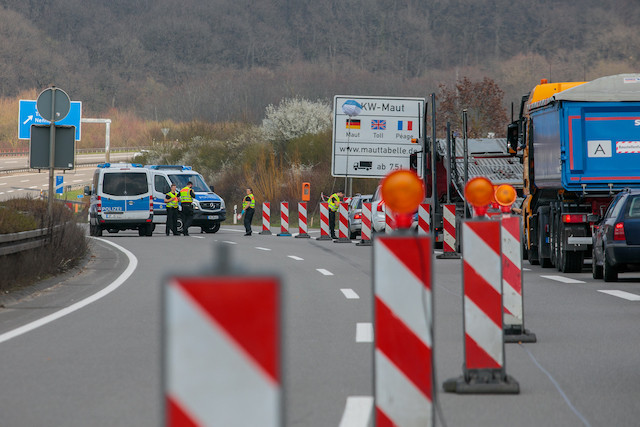Germany at the start of the pandemic in 2020 unilaterally decided to introduce border checks and cross-border traffic although workers were allowed to pass provided they could show a certificate from their employer.
The introduction of controls along its eastern border has prompted concern that similar restrictions could loom on its border with the grand duchy.
“We must do everything for commuters to reach their workplace without restrictions,” Asselborn (LSAP) told German media outlet RND, adding that 60% of Luxembourg’s healthcare staff commuted into the country.
“If these commuters can no longer enter, then the healthcare system in Luxembourg will collapse,” the foreign minister said.
The minister said that non-essential travel should be curbed but that border checks shouldn’t make life unnecessarily hard for commuters. He added that he hopes there won’t be any “unpleasant surprises” like last year, calling border checks “poison for the European idea.”
Germany fears that the more contagious UK and South African coronavirus mutations will pick up speed in the country with cross-border traffic and has declared the neighbouring Czech and Austrian regions “virus variant areas”.
Since 14 February, traffic from the Czech Republic and Tirol is subject to controls, with only residents from Germany, essential workers and lorry drivers allowed to pass if they can show a negative test result.
The controls led to long delays at the border and complaints from industry who rely on cross-border workers who were not considered essential. Between 14 and 20 February, around 18,000 people were turned away at the border because they couldn’t show a negative test result or weren’t among the groups allowed to enter, German media said.
The regional leaders of Luxembourg’s neighbouring Länder--the Saarland and Rhineland-Palatinate--have also spoken out against unilateral border closures.
Saarland’s minister-president Tobias Hans last week said that any controls would have to be coordinated between neighbours and could not lead to difficulties for cross-border commuters. Rhineland-Palatinate’s Malu Dreyer said that rather than closing borders there should be more testing.
Luxembourg has long said its higher infection rates are partially to blame on its larger volumes of testing. Prime minister Xavier Bettel (DP) during a February press conference said the same about the presence of the UK variant.
Bettel said that sequencing of virus samples to analyse the variants of Sars-CoV-2 circulating the country had focused on specific clusters where there was suspicion of the UK variant. He argued that this also meant health authorities found more cases caused by this mutation as this is what they were searching for.
The UK variant--or B.1.1.7--became the most frequently detected variant at the end of January in Luxembourg, when more than a third of 159 samples sequenced showed this strain.
Around 100,000 people commute into Luxembourg from France and another 50,000 people each come into the grand duchy to work from Belgium and Germany.
